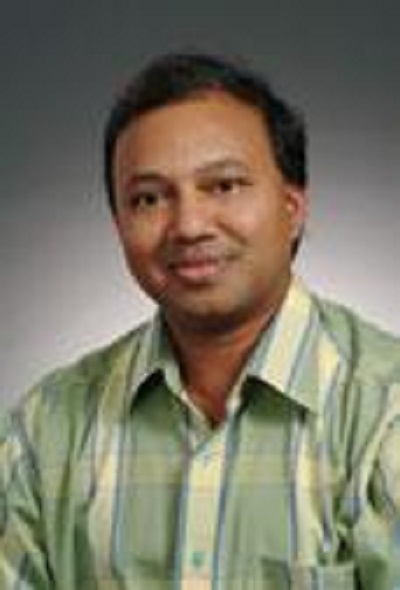Prof. S. Balachandar

William F. Powers Professor, Department of Mechanical & Aerospace Engineering
Director, Herbert Wertheim College of Engineering Institute for Computational Engineering
bala1s@ufl.edu (352) 392-0961
Professor Balachandar is currently the William F. Powers Professor in the Department of Mechanical and Aerospace Engineering at the University of Florida. From 2005 to 2011, he was the Chairman of the department. Under his leadership, the department grew rapidly from 42 to 54 faculty. He is the inaugural Director of the Herbert Wertheim College of Engineering Institute for Computational Engineering (ICE) and under his leadership the Institute has established the graduate certificate program in Scientific Computing.
Professor Balachandar’s expertise is in computational multiphase flow, direct and large eddy simulations of transitional, turbulent flows, and integrated multiphysics simulations of complex problems. He is a fellow of the American Physical Society and the American Society of Mechanical Engineers. Professor Balachandar received the Francois Naftali Frenkiel Award from the American Physical Society Division of Fluid Dynamics in 1996 and the Arnold O. Beckman Award and the University Scholar Award from the University of Illinois.
Before joining the University of Florida, Professor Balachandar was a professor in the Department of Theoretical and Applied Mechanics at the University of Illinois at Urbana-Champaign, where he was the co-lead of the Fluids Group and a member of the Science Steering Committee at the DOE ASAP Center for Simulation of Advanced Rockets. This research group included six faculty, seven research scientists, and several graduate and undergraduate students. Many of these staff and students are now employed as researchers at NNSA labs.
As the PI, Professor Balachandar will focus on establishing a world-class center for predictive simulations of compressible multiphase turbulence. The research and development at the center will stimulate, benefit from, and leverage the corresponding efforts at the NNSA labs. Educating and training domestic graduate students and research scientists in predictive simulation science using peta and exascale platforms, and their placement at the NNSA labs, will be a singular goal of the center.
